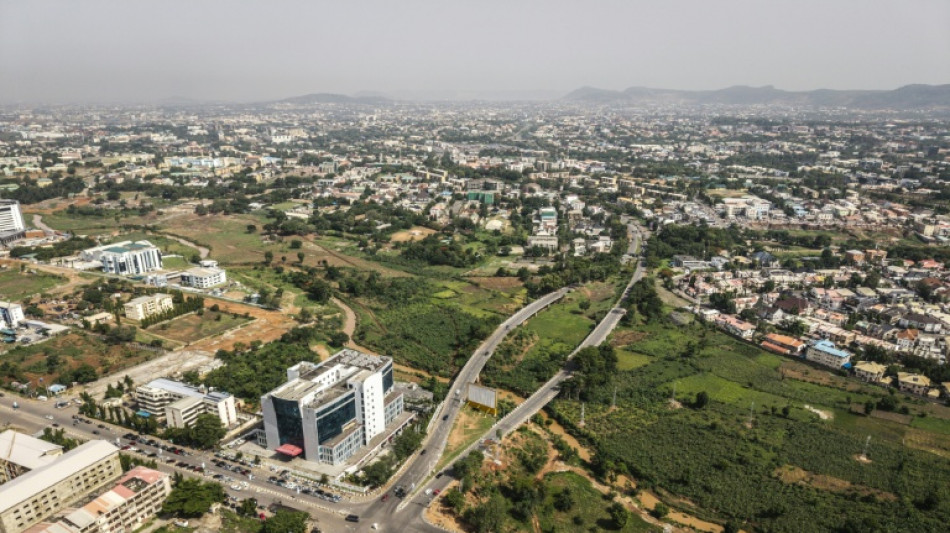
-
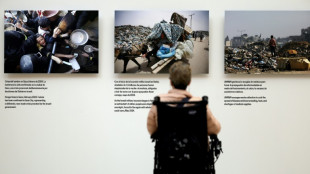 Top Madrid museum opens Gaza photo exhibition
Top Madrid museum opens Gaza photo exhibition
-
Frank unfazed by trophy expectations at Spurs

-
 US says dismantled telecoms shutdown threat during UN summit
US says dismantled telecoms shutdown threat during UN summit
-
Turkey facing worst drought in over 50 years

-
 Cities face risk of water shortages in coming decades: study
Cities face risk of water shortages in coming decades: study
-
Trump mocks UN on peace and migration in blistering return
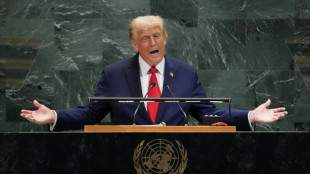
-
 Stokes named as England captain for Ashes tour
Stokes named as England captain for Ashes tour
-
Does taking paracetamol while pregnant cause autism? No, experts say

-
 We can build fighter jet without Germany: France's Dassault
We can build fighter jet without Germany: France's Dassault
-
Atletico owners negotiating with US firm Apollo over majority stake sale - reports

-
 Tabilo stuns Musetti for Chengdu title, Bublik wins in Hangzhou
Tabilo stuns Musetti for Chengdu title, Bublik wins in Hangzhou
-
Trump returns to UN to attack 'globalist' agenda

-
 No.1 Scheffler plays down great expectations at Ryder Cup
No.1 Scheffler plays down great expectations at Ryder Cup
-
WHO sees no autism links to Tylenol, vaccines

-
 US Fed official urges proactive approach on rates to boost jobs market
US Fed official urges proactive approach on rates to boost jobs market
-
Nearly 100 buffaloes die in Namibia stampede
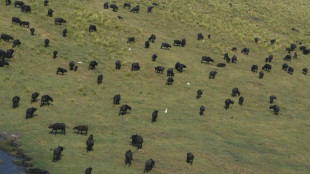
-
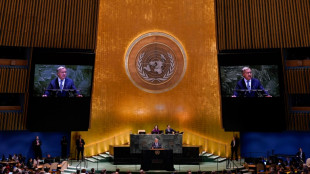 UN chief warns 'aid cuts are wreaking havoc' amid slashed budgets
UN chief warns 'aid cuts are wreaking havoc' amid slashed budgets
-
Schools shut, flights axed as Typhoon Ragasa nears Hong Kong, southern China
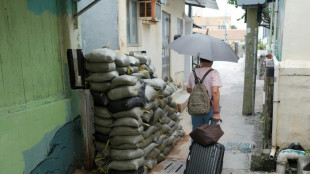
-
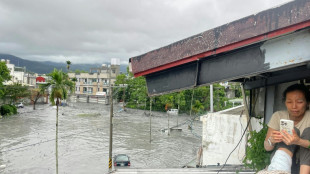 Hundreds trapped as typhoon triggers barrier lake burst in Taiwan
Hundreds trapped as typhoon triggers barrier lake burst in Taiwan
-
EU proposes new delay to anti-deforestation rules
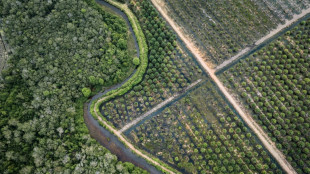
-
 Man City have 'recovered many things': Guardiola
Man City have 'recovered many things': Guardiola
-
Thailand to 'clarify misunderstandings' after SEA Games petanque ban

-
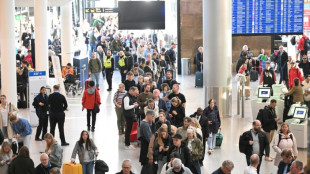 Denmark brands mystery drone flights 'serious' attack
Denmark brands mystery drone flights 'serious' attack
-
Iran executed at least 1,000 this year in prison 'mass killing': NGO
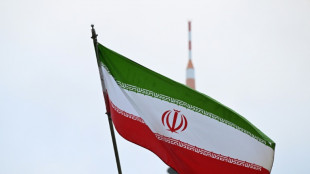
-
 France's Dassault says can build European fighter jet without Germany
France's Dassault says can build European fighter jet without Germany
-
Former umpire 'Dickie' Bird dies aged 92
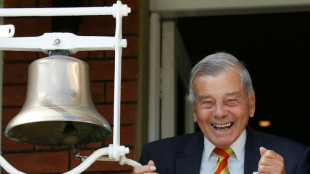
-
 Ghana deports at least six west Africans expelled by US to Togo
Ghana deports at least six west Africans expelled by US to Togo
-
Bradley admits thoughts linger about having played in Ryder Cup

-
 EU queries Apple, Google, Microsoft over financial scams
EU queries Apple, Google, Microsoft over financial scams
-
Former umpire Harold 'Dickie' Bird dies aged 92
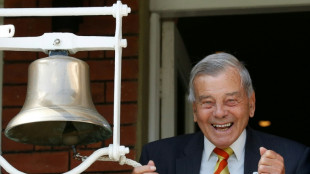
-
 Cycling worlds bring pride to African riders despite disadvantages
Cycling worlds bring pride to African riders despite disadvantages
-
Stocks diverge with eyes on key economic data

-
 German business groups pressure Merz over ailing economy
German business groups pressure Merz over ailing economy
-
Drone flights 'most serious attack' on Danish infrastructure, PM says
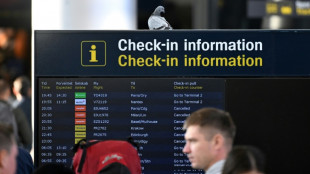
-
 Indonesia, EU sign long-awaited trade deal
Indonesia, EU sign long-awaited trade deal
-
Howe confident Newcastle will find 'X factor'

-
 Trump returns to UN podium and Zelensky talks
Trump returns to UN podium and Zelensky talks
-
Tech migrants 'key' for US growth, warns OECD chief economist
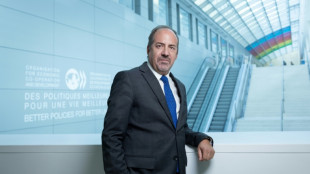
-
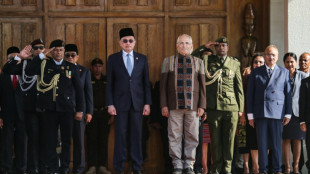 East Timor to become ASEAN bloc's 11th member in October
East Timor to become ASEAN bloc's 11th member in October
-
OECD ups world economic outlook as tariffs contained, for now

-
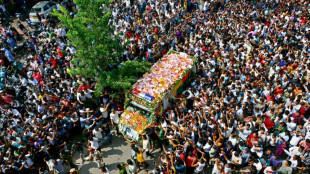 India bids tearful farewell to maverick musician
India bids tearful farewell to maverick musician
-
Sunset for Windows 10 updates leaves users in a bind

-
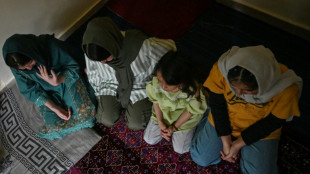 Hopes of Western refuge sink for Afghans in Pakistan
Hopes of Western refuge sink for Afghans in Pakistan
-
'Real' Greek farmers fume over EU subsidies scandal
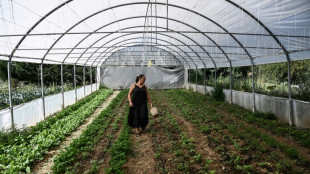
-
 Trump to see Zelensky and lay out dark vision of UN
Trump to see Zelensky and lay out dark vision of UN
-
US lawmaker warns of military 'misunderstanding' risk with China

-
 Emery seeks Europa League lift with Villa as Forest end long absence
Emery seeks Europa League lift with Villa as Forest end long absence
-
Egypt frees activist Alaa Abdel Fattah after Sisi pardon
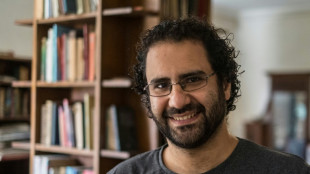
-
 Gibbs, Montgomery doubles as Lions rampage over Ravens
Gibbs, Montgomery doubles as Lions rampage over Ravens
-
Asian markets struggle as focus turns to US inflation

| BTI | -1.9% | 52.865 | $ | |
| AZN | -1.67% | 76.23 | $ | |
| BCC | -0.57% | 78.991 | $ | |
| GSK | -0.93% | 40.535 | $ | |
| CMSC | -0.58% | 24.11 | $ | |
| RIO | -0.18% | 63.535 | $ | |
| NGG | -0.06% | 70.915 | $ | |
| SCS | 0.12% | 16.92 | $ | |
| RBGPF | 0% | 76.6 | $ | |
| CMSD | -0.47% | 24.346 | $ | |
| BCE | 0.11% | 23.095 | $ | |
| BP | 1.79% | 34.995 | $ | |
| JRI | 0.38% | 14.054 | $ | |
| RYCEF | 0.63% | 15.75 | $ | |
| VOD | -0.31% | 11.355 | $ | |
| RELX | -1.27% | 46.49 | $ |

Nigerian farms battle traffic, developers in downtown Abuja
Under the din of traffic from the highway bridge that cuts over his fields, Bala Haruna inspects corn, cassava and okra on his family farm.
A pump pulls up water from a nearby stream and is diverted through trenches dug through cropland wedged between four-lane roads -- fields which were here long before the nearby hotel, the imposing national mosque or any of the high-rises that make up downtown Abuja were even dreamed up.
"There were no buildings here," Haruna, 42, told AFP, reminiscing over his childhood as birds chirped and frogs croaked.
The urban farms dotting Nigeria's capital show the limits of the top-down management the planned city is known for -- oases scattered around pockmarked downtown that has long expanded outward faster than it has filled in.
They owe much of their existence to the fact that they lie in hard-to-develop gulches along creek beds. Even roads built through them over the years tended to be elevated highway overpasses.
That fragile balancing act, however, is increasingly under threat, as developers fill in farmland despite regulations protecting these areas as rare green spaces in a city known for concrete sprawl.
On the other side of the overpass, the future has arrived: the vegetation abruptly stops and temperatures suddenly rise over flattened fields razed by construction crews.
Local farmers said the people who took the land three years ago provided no documentation and only gave the eight of them 300,000 naira to split -- a sum worth only $190 today after years of rampant inflation.
Much of the farmland in and around downtown is supposed to be a municipal green space, with neither farms nor buildings on it.
But enforcement of the decades-old Abuja master plan is ripe with abuse and lack of enforcement, said Ismail Nuhu, urban governance researcher who did his PhD on the capital's urban planning.
Adding to the sense of precarity is that the land, on paper, belongs to the government.
"Politicians still use it to grab lands, just to say, 'Oh, according to the master plan, this is not to be here'," no matter what the document actually says, he told AFP, adding that, technically, even the presidential villa is not located where it is supposed to be.
Nyesom Wike, the minister of the Federal Capital Territory, which includes Abuja, recently told reporters he would "enforce" the 70s-era master plan by building roads and compensating and evicting settlements that stand in the way.
FCT officials including Wike's spokesman did not respond to requests for comment.
- Urbanising country, not enough jobs -
The farms have provided steady employment -- a lifeline for some as the rapidly urbanising country fails to produce enough jobs. A recent opening for 10,000 government jobs saw 450,000 applicants, according to local media.
"Having a green space... in a very thick, populated city like Abuja does a lot of good," said retiree Malik Kuje Guni, who started farming three years ago to supplement his pension.
While tens of thousands of residents pass by the farms each day without second thought, Guni, when he was working as a civil servant, would often come down to visit, enjoying the shade and fresh air.
Now tilling a potato plot of his own, "I can come down, work, sweat," the 63-year-old said. "I have hope something will come out of it."
A few blocks over, squat, informal houses made of wood and sheet metal give way to a field of sugarcane, corn and banana trees. Glass-panelled highrises, half-finished construction and the imposing Bank of Industry tower above.
The crops give way to land cleared by developers a few months ago, some of whom pushed into Godwin Iwok's field and destroyed his banana trees.
Iwok, who quit his security job 22 years ago to make more money as a farmer, has had parts of his fields destroyed twice in the past two years, neither time with compensation.
To Guni, the farms represent the city's rural heritage. Despite decades of government promises to relocate Nigeria's capital from the crowded, congested mega-city of Lagos, the move only occurred in 1991.
But neither Iwok, 65, nor Haruna want their children to continue their increasingly precarious line of work.
"I wouldn't want my children to stand under the sun as I did," Iwok told AFP.
"I only use what I'm getting here... to make sure my children go to school."
M.Betschart--VB
